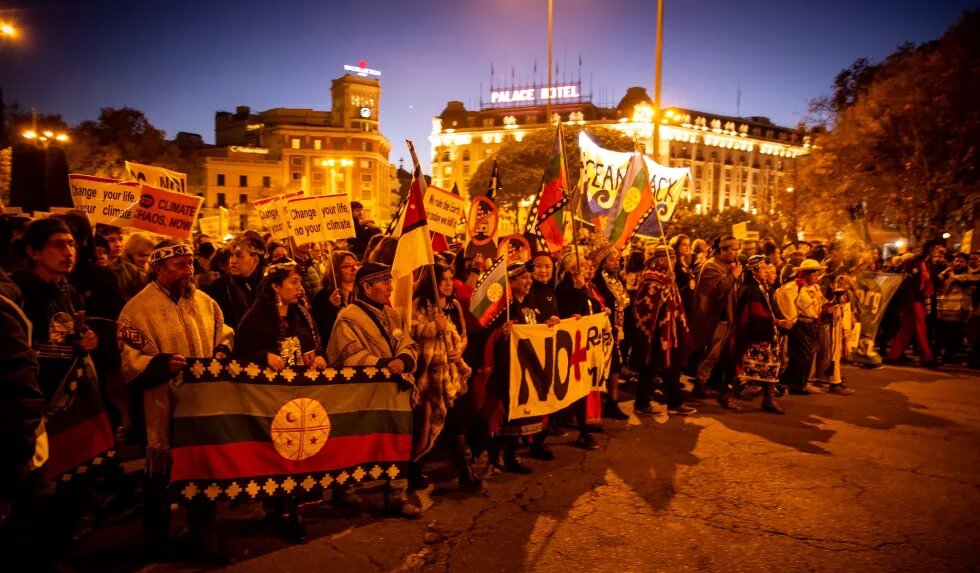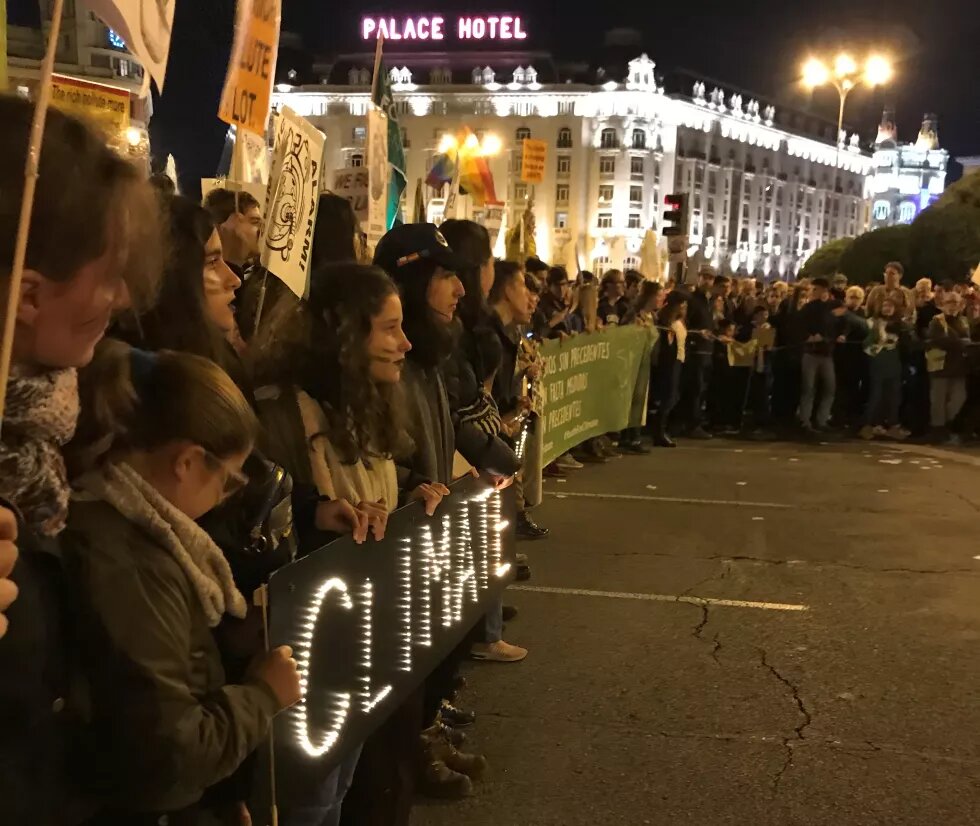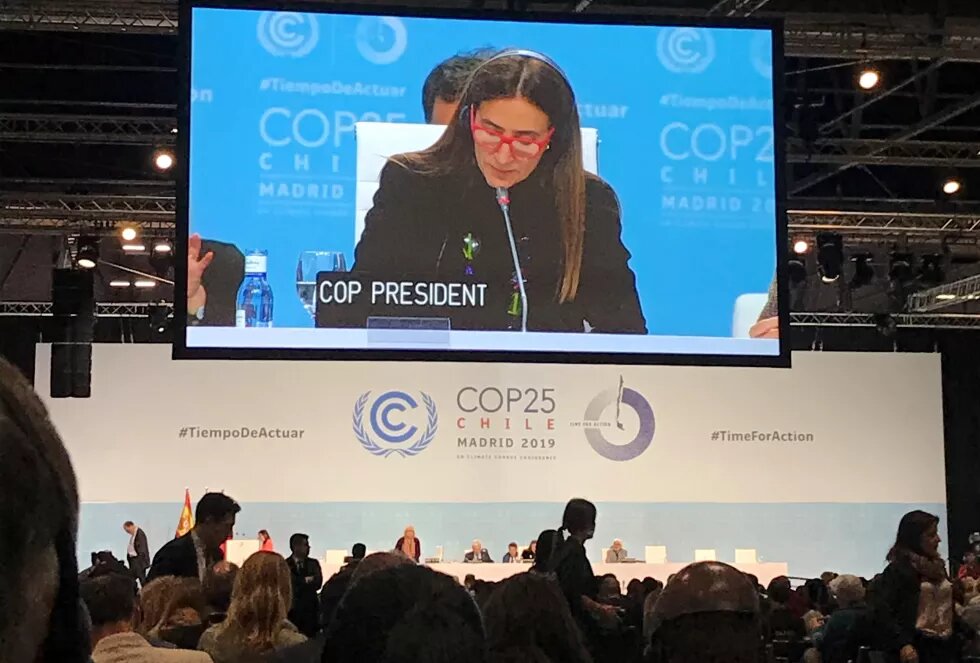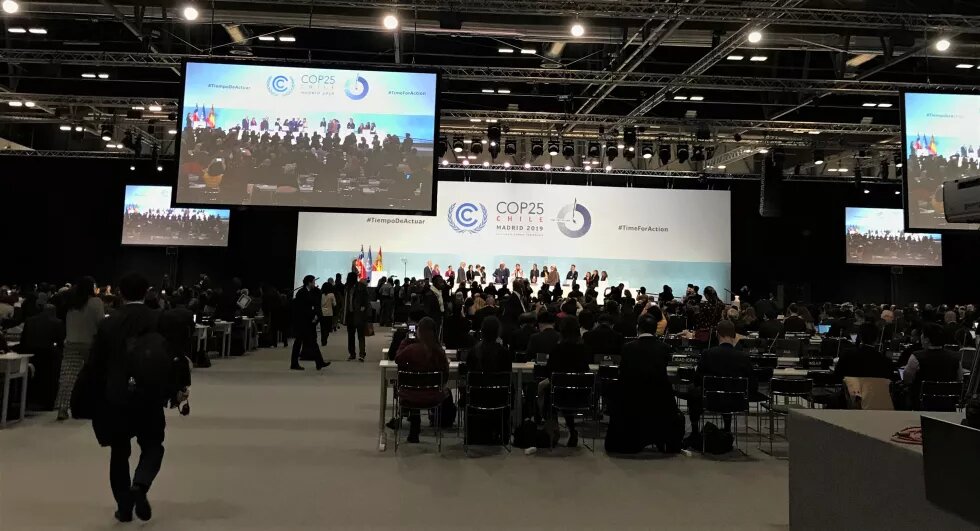
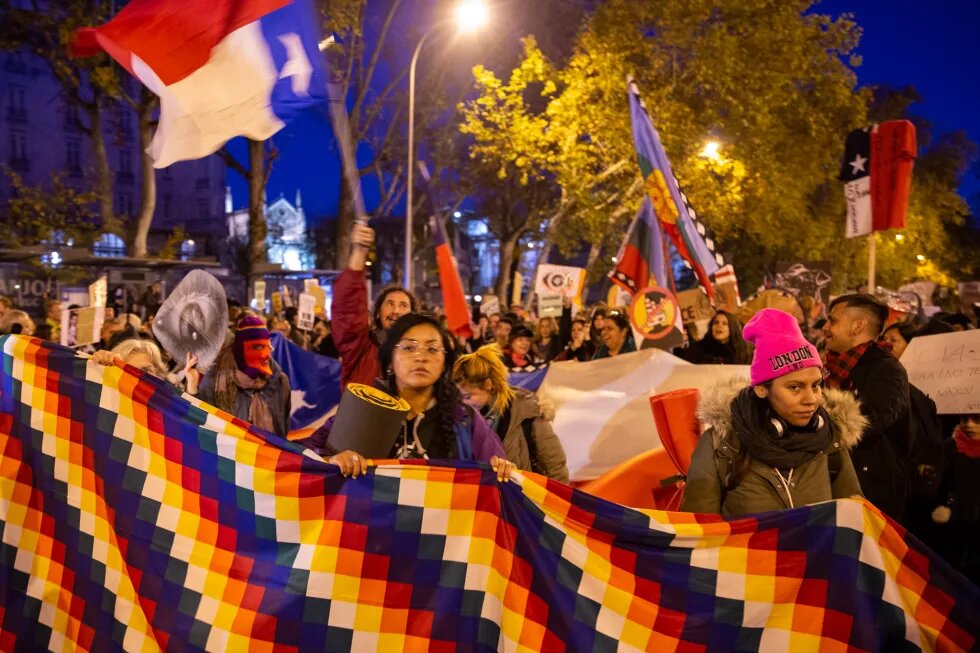
During the climate conference COP25, negotiators were unable to reach a consensus on the adoption of Article 6 - one of the unresolved agenda items from the Paris Agreement. Meanwhile, half a million people took to the streets of Madrid calling for climate justice.
As an observer participating in the UN Climate Change Conference of the Parties (COP), one gets to be in the midst of climate talks and experience the dynamics of the negotiation plenaries, take part in panel discussions and side events, as well as interact with negotiators, activists, and other civil society observers in the hallways of the conference.
The 25th summit (COP25) – held in Madrid, Spain, in December 2019 – focused on the adoption of the remaining implementation guidelines of the Paris Agreement that are still up for negotiation. Especially one item was on everyone’s lips; from country delegates on their way to meetings and during plenaries, to side event panels and civil society observers chatting in the corridors: Article 6. Would parties be able to reach an agreement regarding Article 6? A few days into COP25, civil society was already skeptical; some referred to the article as “the technical and obscure text that could make or break the Paris agreement”.
Article 6; efficient markets or a climate justice catastrophe?
The rules for adopting Article 6 are the last sections of the 2015 Paris Agreement that remained unresolved in previous years’ climate talks. It addresses the market and non-market mechanisms to reduce greenhouse gas emissions. According to one mechanism, if one country is unable to meet pledged emission reductions, it could ‘buy’ ‘carbon units’ from other countries. This mechanism is known as the ‘global carbon market’.
The three main approaches of Article 6, through which countries can voluntarily cooperate, are outlined in articles 6.2, 6.4, and 6.8 of the Paris Agreement.
Article 6.2 - revolves around bilateral cooperative approaches and internationally transferred mitigation outcomes.
Article 6.4 - refers to market mechanisms in carbon trading- and emission trading systems through a centralized governance system known as the Sustainable Development Mechanism (SDM). Countries, as well as private sector parties, can trade through this system.
Article 6.8 - refers to non-market approaches related to emission cuts in other countries, by providing aid, technology transfer, and capacity building in “developing countries”.
While some nations and private sector stakeholders view Article 6 as the critical tool for making countries’ reduction targets more ambitious, others have criticized the article for doing more harm than good as it contains loopholes that create room for cheating (such as double counting).
It has been widely acknowledged by experts and various civil society organizations that carbon markets will not help stop climate change. Rather than being an incentive for nations to reduce their emissions, they serve as a license for countries to continue emitting. In other words, carbon markets are less expensive methods for countries to meet their pledges rather than reducing their emissions at home since they let them include reductions achieved abroad in achieving domestic targets. Thus, they can greenwash the inaction of high emitters. As Greenpeace’s political advisor Jannes Stoppel states, Article 6 is “a quick and dirty fix to climate mitigation and delay emissions reductions”.
Emission trading mechanisms have been a method for governments to uphold their reduction commitments ever since the signing of the Kyoto Protocol in 1997. These markets contain a huge wealth, reaching a record of 194 billion Euros in 2019, leaving the industrialized wealthy nations to profit at the expense of the environment, less developed countries, and indigenous frontline communities who suffer the most from the consequences of climate change. This is a huge threat to climate justice, as the “powerful few” with the political, technical and economic skills to engage in carbon markets are able to benefit from this mechanism, while developing countries that lack the skills and ability, are left behind.
Not only are powerful industrialized nations benefiting from this, but large corporates are too. This was evident when representatives from such corporates hail carbon markets in a panel held at the International Emissions Trading Association (IETA) Business Hub.
Article 6, indigenous communities, and human rights
Negotiators at the COP tried to reach a consensus on what role carbon markets of Article 6 should play in meeting the promise of the Paris Accords. Meanwhile, indigenous communities and representatives criticized the negotiators for their lack of ambition and their failure to include the element of human rights in Article 6. Human rights elements include ensuring public participation of affected local communities in the negotiations, and ensuring that mitigation and adaptation measures are implemented without harm to these communities (CIEL, 2019).
An activist representing one of the indigenous groups addressed the huge injustice they suffer from while companies try to “distract” them with trading markets in order to make profits. He called for the public to refuse such schemes as these contribute to human and indigenous rights violations, and gender inequalities.
“We’re tired of governments siding with polluters. We’re tired of our lives being negotiated away”.
Indigenous young people have come from across the world and are calling to fix Article 6. The article has often been referred to as an “indigenous genocide” and a model that privatizes and sells indigenous and traditional lands. Activists also expressed their dissatisfaction with the fact that negotiations are happening without consulting indigenous people. This is particularly unjust considering that 80% of the world’s biodiversity is protected by indigenous populations who account for merely 5% of the world’s population. Not only do they live in these forests and ecosystems, but they act as vital climate protectors. Therefore, it is crucial that indigenous knowledge be recognized by world leaders.
Climate Strike
On the first Friday of the COP25, a climate strike was held in the city of Madrid, led by the Fridays for Future movement. 500,000 people marched the streets of Madrid calling for climate justice, making it one of the largest single climate marches in history.
“What do we want?”
“Climate justice!”
“When do we want it?!”
“NOW!”
Being in the midst of the crowd calling for action, the sense of frustration was intense. At the same time, however, I got the heartwarming feeling of being part of something bigger. It left me with the realization that the power belongs to the people and the frontline indigenous communities who are fighting for climate justice and against climate change in the real world, outside the walls of the COP negotiation halls.
While people marched and science has spoken, the Madrid summit failed to deliver.
Once again, parties at the COP25 failed to agree on major issues including guidance for Article 6 of the Paris Agreement and that’s after two weeks of negotiations and more than 40 hours of delay, making it the longest-running multilateral climate talks in history.
At the closing plenary held on Sunday afternoon, representatives from indigenous communities and civil society NGOs expressed their frustration and disappointment in the governments that failed them.
“We can’t help but feel the irony of your refusal to include human rights and indigenous peoples’ rights in Article 6 when we know that market approaches have directly harmed our communities. You treat negotiations like they were a zero-sum game, when you make deals behind closed doors, trading off our rights for the profits of the corporations, who caused this problem in the first place. Again, you forget that we can’t negotiate with nature” said a representative from the Indigenous people’s organizations.
Watching the talks end in disappointment, I remember the words of an indigenous people’s activist echoing the corridors of the COP: “How on Earth are we discussing Article 6?!” casting a light on the absurdity of “negotiating” on the article at the expense of the vulnerable and indigenous communities.
